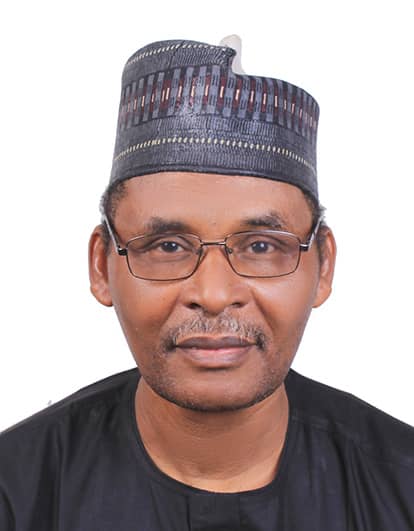The first phase of the Tinubu administration ended on the 29th of May 2024. It was a tough ride for the President and his economic team as they struggled to reform a very poor policy environment characterized by persistent price distortions, slow growth, widespread poverty, and a constrained job sector. His sweeping market-based reforms, which he believed were necessary to rebuild the economy, have brought difficult adjustments and are reshaping the economy in countless ways. The economic challenges he inherited have exacerbated, prompting Nigerians to, hilariously, ask him to restore the economy back to where Buhari left it!
It may be hard for the President, but he must listen to Nigerians as they speak about his failures and seek to turn those failures into learning as he steps into the second phase of his administration.
What will make the difference in Phase 2 of President Tinubu’s administration?
A slow growing economy with decreased business investments, elevated inflationary pressures and subdued consumer spending cannot be not an option. While the economy is technically not in a recession, it certainly feels like one! To make a difference in Phase 2, the economy must be stimulated to grow faster, the adverse effects of inflation and currency devaluation must be minimized, while resources are provided to the people to ease the acute cost-of-living crisis.
Here’s seven SUGGESTED PRIORITIES.
First, President Tinubu must refine his development agenda. Nigeria cannot develop on the basis of ad hoc policies. Any country that aspires to realise its potential must endeavor to have a robust agenda and a strategy in tune with current realities.
The President lacks an appropriate roadmap to guide the economic transformation of the country. He came on board with the Renewed Hope Agenda (RHA) and seemed to have jettisoned Nigeria’s NDP 2021-2025 and the Nigeria 2050 Perspective Plan- both excellent documents, built on the foundation developed in Vision 2020. The RHA may contain some profound economic and social development ideas. But these are, at best, nice-to-have wishes rather than realistic goals.
The ideological leaning of the new agenda should be, to borrow from ex-President IBB, a little to the right and a little to the left. Recent developments in the economy have elevated concerns regarding the efficacy of neo-liberal solutions to Nigeria’s medium to long term economic outlook. My candid advise is that PBAT’s agenda must seek to strike a balance between blanket protectionism and the unbridled openness he embraces.
Second, President Tinubu must show more compassion, support the poor and vulnerable. I have advocated in the past, that the President’s reform agenda must be “re-calibrated to be consistent with new realities and grounded in realism and compassion. The agenda…… must offer genuine support to the poor and vulnerable and provide immediate comfort and security to enable them to navigate the stormy seas”.
In fairness, the federal government has outlined a wide range of interventions, spanning Conditional Cash Transfers, community empowerment, MSMEs support etc. to mitigate the pains engendered by the market reforms. Regrettably, the government’s preferred intervention, ‘targeted cash transfers’ to poor and vulnerable households have been poorly delivered and tainted by several corruption allegations. In any case, as we all know, sharing money alone has never been transformative enough.
The President should endeavor to implement a more effective pro-poor reform agenda. A one trillion Naira Family and Enterprise Support Fund is suggested to operate under and alongside the Social Investment Programme. It will target, for support, both survival-oriented activities often undertaken by poor women and growth-oriented micro and small entrepreneurs wishing to set up new businesses or expand existing ones. It will also focus on Programmes for enhancing youth access to economic opportunities through vocational skills and entrepreneurship training.
For effectiveness, the delivery structure of the Social Investment Programme must be completely overhauled. The cost-of-living crisis being a national, rather than federal phenomenon, requires FGN-State-LGAs collaboration and participation. As Chair of the National Economic Council (NEC), the Office of the Vice President is best suited to provide effective policy coordination -both horizontally and vertically- in the design, implementation and ownership of all interventions and programmes. As was the case prior to the creation of the Ministry of Humanitarian Affairs, the Office of the Vice President should provide the necessary guidance on the operation of both the Family & Enterprise Support Fund and the Social Investment Programme.
Third, the key drivers of the cost-of-living crisis must be expeditiously addressed. The cost-of-living crisis is primarily fuelled by current macroeconomic conditions, particularly the elevated inflationary pressures occasioned by high PMS price, poor infrastructure, and continued currency devaluation. Elevated inflationary pressures are impacting on wages and incomes, eroding the citizens’ purchasing power and reducing the potency of the social investment interventions.
The CBN’s monetary policy tools have so far failed in moderating inflationary pressures and must be complimented with other, including fiscal, measures. Indeed, in the medium to long term, significant reduction in food prices can only be achieved by addressing two major factors in agriculture: post-harvest losses and seasonality in production. The government must prioritize measures, including the provision of subsidized inputs, to promote all year-round food production through expansion of irrigation facilities with particular emphasis on small scale earth dams that can be managed by communities; similarly, measures to improve Nigeria’s capacity to store food across seasons and reduce post-harvest losses must be put in place.
Perhaps, Mr. President needs to be cautioned that allowing the importation of selected food items, notably rice, as is being contemplated, is potentially toxic. The agricultural sector is already on its knees, struggling to survive, and allowing duty-free flow of foods into the country will be a death sentence.
Fourth, President Tinubu needs a new strategy to restore investor confidence in the Nigerian economy. This is necessary for investment attraction and retention- and for growth. Perhaps Tinubu should begin with the simple tasks of ensuring policy clarity and predictability. Then he embarks on policy measures to rebuild and strengthen public institutions responsible for service delivery- the Sea and Airports, Customs, FIRS, SON, NAFDAC, CAC, etc. The reform of public sector contracting and procurement processes which are cumbersome, lengthy, and inefficient, will go a long way in deepening transparency, accountability, and rule of law. Then the big one: to win the confidence of the investors, Tinubu must demonstrate a willingness to break from the past: he must break government monopoly in key infrastructure sectors including the refineries, airports, and seaports etc. and allow investors a greater role in funding and management of these sectors.
Fifth, President Tinubu needs to instil fiscal discipline in governance and ensure the judicious and responsible execution of budgets. The elimination of subsidies and depreciation of the Naira have both resulted in nominal oil revenue gains and all three tiers of government now have access to a more auspicious fiscal space. This new fiscal space will be impacted by the discipline and commitment (or lack of it) of our economic managers. To instil discipline in the management of the fiscal space, the President should consider a 5-year balance-the-budget programme for implementation. The core of the programme is to reinforce internal and external revenue mobilisation while limiting the growth of public expenditure. Each of the main components of aggregate expenditure will be subject to a growth or share ceiling. The programme will track and address the challenges of excessive recurrent expenditure, horrendous cost of running the government and ineffectiveness. On the other hand, spending on critical infrastructure will be prioritised so as not to undermine economic growth. So will spending on social programmes including education and basic healthcare.
Sixth, to broaden Nigeria’s resource horizon, Tinubu should facilitate the immediate take-off of the US$10 billion Nigeria Investment and Growth Fund (NIG-FUND) approved by the Federal Executive Council in 2021. Increased internal revenues from taxes, which the administration is pursuing, and expenditure controls, as recommended above, will undoubtedly grow the fiscal space, and narrow the budget gaps. BUT there is a limit to how far government can go with internal revenue derive without imposing additional burden on its citizens. Nigeria must complement its revenue mobilization and expenditure control efforts with the exploration of other funding vehicles and initiatives such as Public Private Partnerships in, and non-debt financing of, critical infrastructure. Thus, Tinubu needs to prioritize the take-off of the private sector-led, US$10bn NIG-FUND, to mobilize domestic and international private resources for the financing and delivery of large infrastructure projects across all the sectors of the economy. Additional private sector resources from the NIG-FUND, will ease the pressure on the budget and facilitate sharper focus on efforts to improve supply and quality of infrastructure.
Finally, President Tinubu must secure Nigeria and save us from bandits, insurgents, and kidnappers. He captured it aptly on May 29th, 2023, when he said, ‘neither prosperity nor justice can prevail amidst insecurity and violence.’ Insecurity has heightened since then and has become a potent threat to Nigeria’s fragile economy.
May Nigerians have cause to celebrate phase 2 of the Tinubu Administration on May 29, 2025.
drmuhammadsagag@yahoo.com
+234 803 317 5353
President Tinubu, Phase 2, By Dr Muhammad Sagagi
Follow Us On WhatsApp




